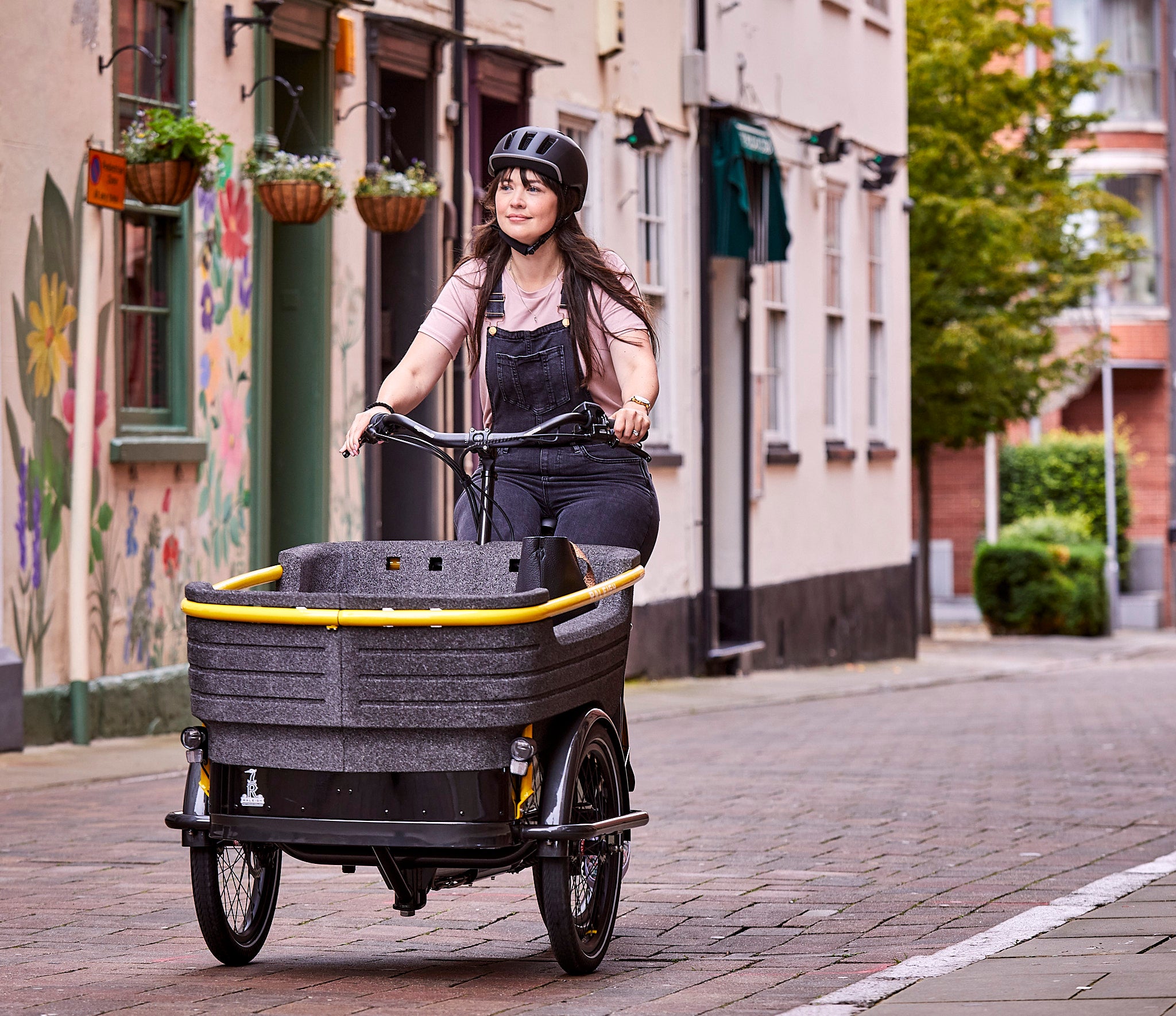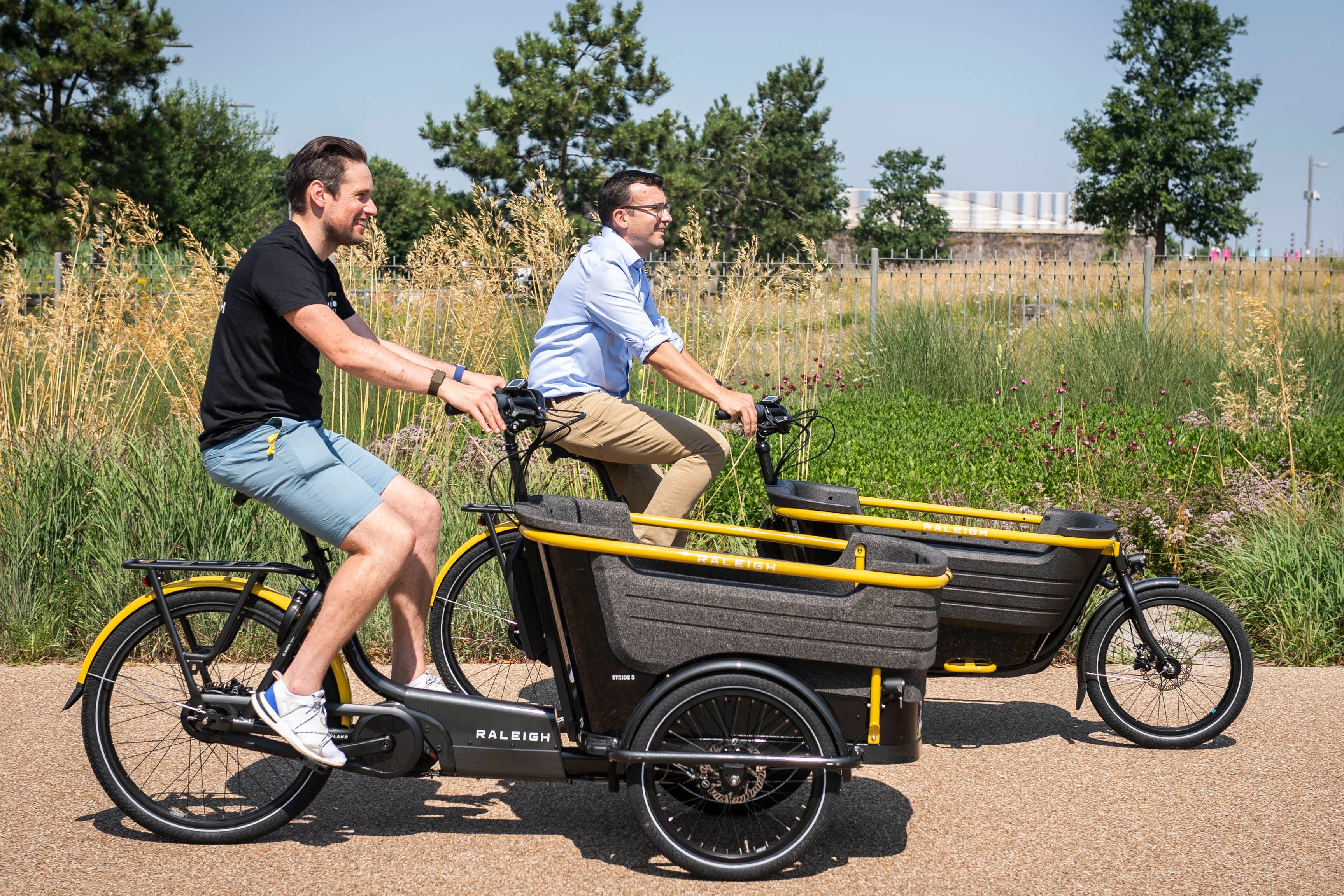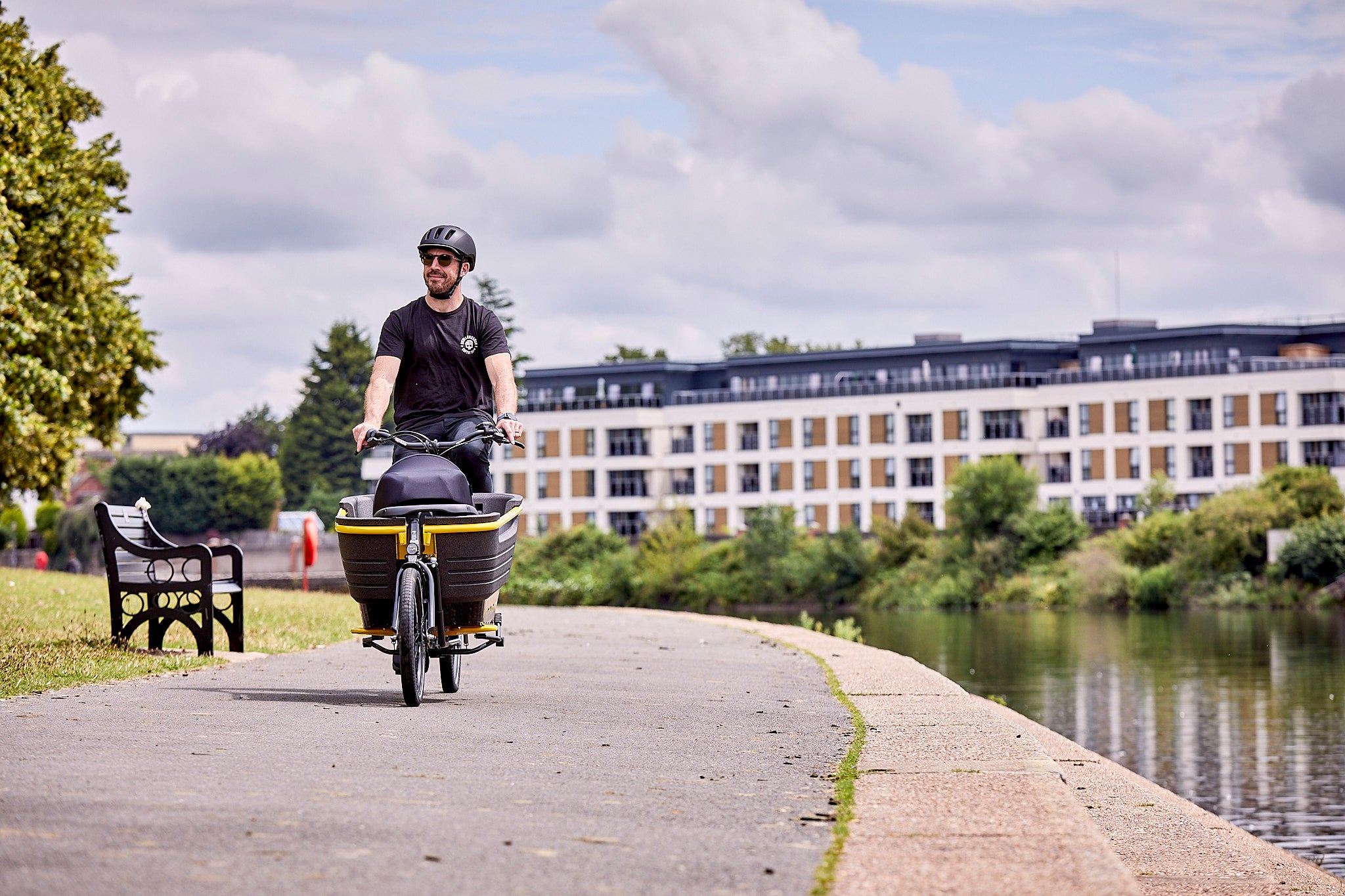Raleigh’s Lee Kidger on cargo bikes, cycling infrastructure and the Highway Code
The managing director of Raleigh thinks now is the time for change and if not now, then when? Cycling reduces congestion and pollution and the associated environmental impacts, so it’s time to get serious, writes Sean Russell


Lee Kidger believes we’re at a crossroads when it comes to cycling. The dual forces of the pandemic and environmental concerns mean now is the time to make real changes to the way we move around. We need to get people cycling and we need to make it safe for all.
“We can make cycling what it needs to be rather than what it has been before,” Raleigh’s managing director says. “With the launch of electric bikes and electric cargo bikes, we could really change people’s habits for a lifetime.”
Kidger’s rise to the top of Raleigh was meteoric. He started out in bike shops such as Halfords before taking a job at Raleigh seven years ago, managing key accounts with a focus on the online business. Then 14 months ago, Kidger, 31, was made the managing director of the UK business and regional director of the Accell group.
Now firmly in place, Kidger has been leading one of the most famous cycling brands during the lockdown cycling boom and as we head out of the other side, he is taking the company forward, trying to encourage healthy changes of behaviour and encourage more people to cycle.
He speaks with bright-eyed enthusiasm as he tells me about the changes electric bikes could make, particularly in our cities. And it’s no wonder he’s excited, Raleigh is one of the first major brands to launch a range of e-cargo bikes.
“We’re making quite a big splash with these cargo bikes,” he says. “We have two ranges, we have specific business-to-business cargo bikes which supports last-mile delivery solutions, typically within urban areas, but we also have our consumer cargo or ‘family cargo’ as we would probably call them.
“Now families can use cargo bikes to carry any cargo they want, we’re using the strap-line, ‘what’s your cargo?’ because you can carry kids, you can carry your dog, you can carry groceries and I’ve seen some random things being carried in cargo bikes, even things like fridges!”
E-bikes and e-cargo bikes open up cycling for a whole range of people that may not have been able, or wanted to, ride a traditional pedal bicycle. Kidger has seen that the consumer has changed massively due to this. When once a cycling enthusiast would want to know the material of the frame, its weight and its components, now Raleigh customers want to know how long the battery will last, how long it takes to charge and does it have lights and mudguards?
Kidger sees this as part of a revolution in cycling for transport and something that needs to be supported by cycling companies and government.
I don’t think we’ll ever get another opportunity, certainly in our lifetime, to make this change and that’s why we feel so passionately about it
“The pandemic accelerated cycling trends because people weren’t commuting,” he says. “They wanted to get out on bikes and that really helped the cycling industry. However, a lot of the cycling infrastructure is quite temporary and that’s not a bad thing because they put a lot of infrastructure in, but, for me, the government has to continue to do more and make it look permanent, not just temporary. So we need to invest in proper, segregated cycle lanes.”
Kidger also points to the new Highway Code in the autumn. He says it will put walking and cycling before driving and he believes it has gone under the radar.
“There’s got to be a massive educational piece to the UK so that this becomes the change,” Kidger says. “Because if there isn’t, there’s going to be crashes, hopefully not fatalities, but crashes because people are not abiding by the new Highway Code.”

Seventy per cent of journeys made by car are under five miles. Kidger believes that with e-bikes, and particularly e-cargo bikes, these can be ended. This is better for the health of the rider, children in congested areas, air-quality, the environment, everyone.
Kidger says he is not anti electric cars but by replacing your second car with an e-cargo bike you can reduce congestion too. He himself has given up a second car and has replaced it with a cargo bike.
“In France last year, 71,000 cargo bikes were sold,” he says. “In Germany they sold 100,000. We’re massively behind but I do think it’s because brands have not got involved.”
In the UK last year, about 2,000 cargo bikes were sold. Kidger believes this will grow 15-fold within four years, so long as people are given incentives to get a cargo bike over a second car. Once again he points to France where it is likely that up to €2,500 (£2,140) will be granted to car owners to scrap it for an e-bike. He also suggests that the government could help by bringing in finance schemes to help people afford these bikes and highlight the long-term savings. For example, charging an e-cargo bike costs about 50p a week, depending on usage, whereas a car might cost £50 a week.

Cargo bikes and e-bikes are the future, Kidger is sure of that. But Raleigh – with about 15 per cent market share – is keen to keep giving customers what they want and for many that is a hint of nostalgia.
Kidger calls these people its “brand fans”, those whose first bike may have been a Raleigh Chopper, Burner or Grifter. He says it has done rebirths of these bikes before and will do them again. He won’t tell me exactly what Raleigh has planned but he believes it will spark interest.
“There’s just a few challenges to cycling that, if we alleviate them, we could make fundamental change: perception of riding on the road, infrastructure and other challenges. I don’t think we’ll ever get another opportunity, certainly in our lifetime, to make this change and that’s why we feel so passionately about it.”






Join our commenting forum
Join thought-provoking conversations, follow other Independent readers and see their replies
Comments